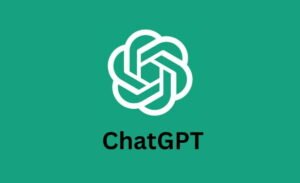ChatGPT Stuns the Medical World: Beating Doctors at Diagnosing Illness – AI in healthcare diagnosis. In a quiet conference room somewhere, a panel of medical experts pored over answers to a mysterious test, AI vs doctors in diagnosis. Each answer—some written by human doctors, some guided by artificial intelligence, and others crafted entirely by AI—held the key to a groundbreaking discovery. The question was simple yet profound: Who—or what—could diagnose illnesses more effectively, humans or machines? ChatGPT medical diagnosis – is this possible?

AI in healthcare diagnosis
Artificial intelligence in medicine – The backdrop to this extraordinary story begins with a small but revelatory study that tested the diagnostic prowess of 50 doctors against none other than ChatGPT, OpenAI’s famed chatbot. Doctors, armed with their years of training, experience, and intuition, were given case histories to analyze. Some were equipped with ChatGPT as an assistant, while others relied solely on their expertise. Meanwhile, ChatGPT itself—unaided by human doctors—was handed the same cases to solve independently.
As the experts scored the answers, unaware of their origins, an unsettling trend began to emerge.
The Shocking Results
When the final scores were tallied, the findings hit the healthcare and AI communities like a thunderbolt:
– Human doctors scored an average of 74%.
– Human doctors assisted by ChatGPT scored slightly higher, at 76%.
– ChatGPT, working entirely on its own, scored a jaw-dropping 90%.
The numbers were clear, but their implications were dizzying. ChatGPT—a machine with no physical senses, no clinical experience, no bedside manner—had outperformed the best of human skill. One of the AI healthcare breakthroughs?
How could this be? Was this a fluke? A triumph of technology? Or a humbling lesson for humanity?
The Anatomy of the Experiment
The study did more than reveal raw numbers; it exposed an uncomfortable truth about human nature. Doctors who had access to ChatGPT often ignored or downplayed its suggestions, relying instead on their own instincts. Had they been more open to listening to their AI assistant, they might have scored closer to ChatGPT’s remarkable 90%.
The researchers speculated: was it pride? Skepticism? A fear of the unknown? After all, medicine is as much an art as it is a science, and doctors have long been the guardians of that delicate balance. But as the experiment showed, technology might be redefining the boundaries of this art.
What Does the Future Hold?
This is AI revolution in healthcare. The findings ignite a powerful debate: What role should AI play in the future of healthcare? Should we really embrace AI in healthcare diagnosis?
Few would argue for an entirely robotic hospital—patients still yearn for the empathy, compassion, and intuition of human doctors. But if AI can diagnose certain conditions with startling precision, can doctors afford to ignore it?
Experts envision a future where the most effective healthcare systems will be those where humans and AI collaborate seamlessly. Doctors will need to shed their resistance and embrace AI as an invaluable tool in their arsenal, much like a stethoscope or an MRI machine.
But there’s also a cautionary note. If humans don’t adapt quickly enough, will AI surpass them entirely, leaving patients to rely solely on algorithms?
A Glimpse Into Tomorrow
For now, the study is a wake-up call. It challenges our assumptions about human superiority in critical fields and forces us to confront an urgent question: Can we learn to coexist—and thrive—with the machines we’ve created?
- Is ChatGPT the future of medicine?
- How is AI changing patient care
- AI diagnosis vs human doctors: what’s next?
- Healthcare innovation with AI tools – what’s next?
The road ahead is uncertain, but one thing is clear: the future of healthcare is here, and it’s powered by AI. Whether we embrace it or resist it will determine how that future unfolds.
This tale of triumph and tension leaves us to ponder not just what AI can do, but what it means to be human in an increasingly machine-driven world. The stakes couldn’t be higher, and the time to act is now.